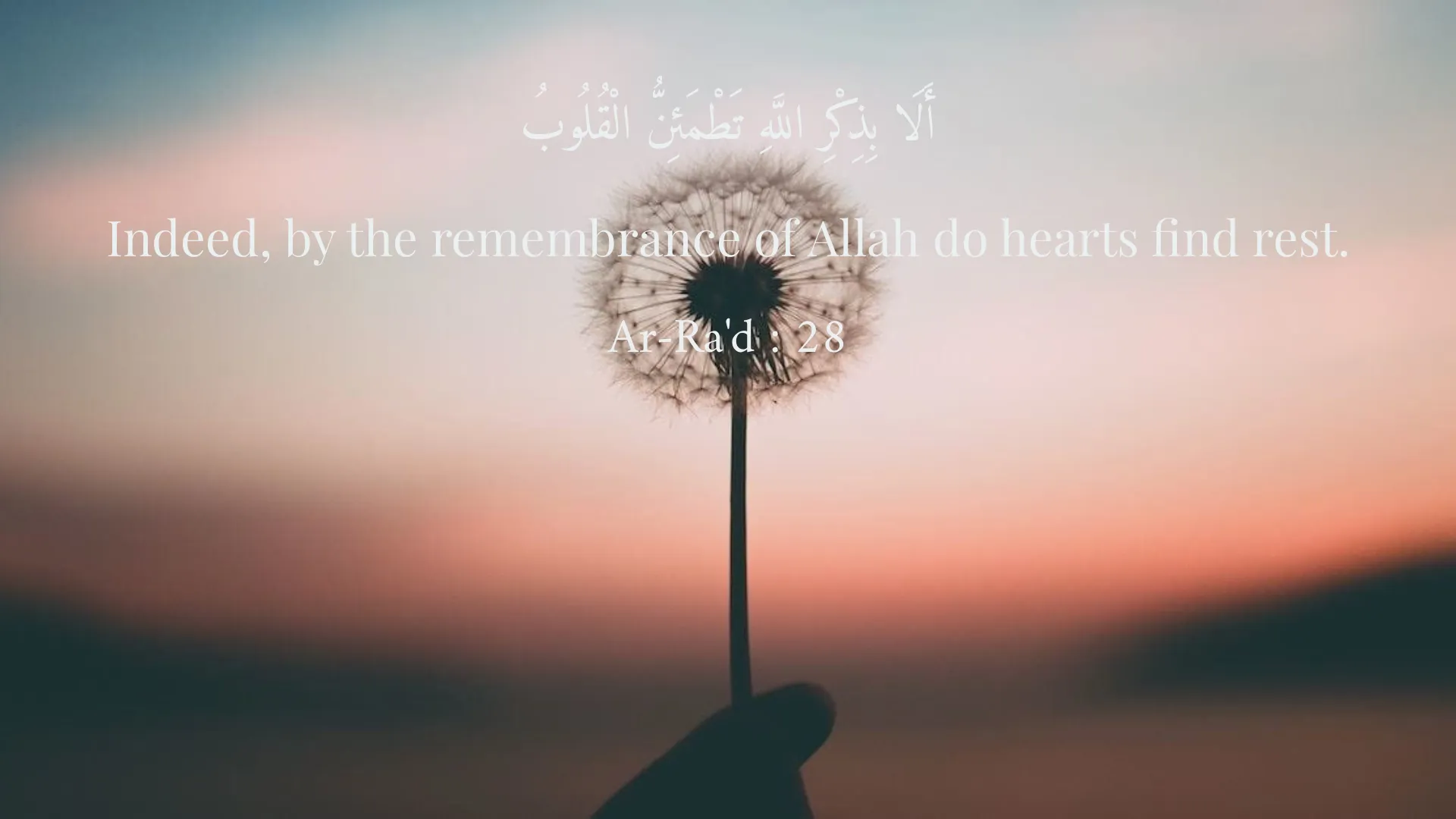Quranic Answer

Faith is one of the primary sources of happiness and peace in human life. In today's world, where stress and anxiety often dominate our daily lives, the search for inner peace and joy has become more critical than ever. The role of faith in achieving emotional stability and tranquility cannot be understated, especially for those who adhere to religious principles. Among the various sources of guidance available, the Holy Quran stands out as a profound text that addresses the necessity of faith and righteous deeds for attaining true happiness and peace. It provides a holistic framework that emphasizes the development of a strong connection with God as a means of fostering tranquility within the human soul. In the Holy Quran, Allah clearly states that belief in Him and righteous deeds lead to happiness and the tranquility of the soul. One of the most poignant verses illustrating this point can be found in Surah Ar-Ra'd, verse 28, where it reads: 'Indeed, by the remembrance of Allah do hearts find rest.' This verse succinctly encapsulates the essence of how spiritual connection can calm the heart. The act of remembering God—through prayer, meditation, and reflection—serves as an anchor for countless believers. It pacifies the restless spirit, calming the turbulent waves of anxiety that life often presents. Understanding this concept goes beyond mere belief; it involves actively participating in practices that bring about an awareness of the divine presence in our lives. Engaging in daily prayers, reciting the Quran, and participating in community worship are all integral practices that help believers cultivate a sense of peace. These actions serve to remind individuals of the greater purpose of life, assisting them in finding a deeper sense of joy and fulfillment. Furthermore, in Surah Al-Furqan, verse 70, Allah emphasizes a vital connection between faith, repentance, and righteous action by stating, 'except for those who repent, believe and do righteous work.' This verse highlights the importance of not only having faith but also demonstrating it through actions. The call for righteousness reflects the idea that faith must be lived and practiced, rather than simply believed. Such righteous actions can take many forms, including acts of kindness, charity, and community service. Engaging in these activities not only benefits others but also enriches one's own life, fostering a deeper sense of happiness. Moreover, faith plays a pivotal role in shaping a believer's outlook on life. In a world filled with uncertainties and challenges, having faith acts as a guiding beacon, offering hope in trying times. This is further reinforced in Surah Al-Mu’minun, verse 11, which states: 'And they are the inheritors of Paradise, wherein they will abide eternally.' This verse illustrates the ultimate reward for those who hold steadfast to their faith and commit themselves to a life of righteousness. The promise of Paradise serves not just as a motivational factor for believers, but it instills in them a sense of purpose and direction. Understanding that their faith has eternal ramifications provides comfort and strength to navigate life's tribulations. Personal experiences from the lives of believers serve as powerful illustrations of the joyful impacts of faith. Many individuals report that during times of hardship, turning to God through prayer and reflection helps them feel less alone and more supported. When facing challenges—be it relating to health, relationships, or personal setbacks—those with a strong foundation of faith often find that they are equipped with resilience. This resilience stems from the belief that, regardless of the situation, there exists a divine plan that they are a part of, giving rise to hope and courage to persevere. In addition to individual experiences, there is also a communal aspect to faith that contributes to happiness. Being part of a faith community provides companionship, encouragement, and a shared sense of purpose. Collective worship, community support during times of grief, and celebrations of shared beliefs foster environments where individuals can thrive. It reinforces the idea that one is not alone in their struggles and that support exists through the bonds of mutual faith. In conclusion, faith in God possesses a unique ability to generate happiness and peace in human lives, as clearly addressed in various verses of the Quran. The principles laid out in the holy text emphasize the importance of belief coupled with righteous deeds for experiencing true contentment. The remembrance of Allah is not just a ritual but a pathway to achieving inner tranquility, bringing individuals back to a place of serenity amidst the chaos of life. Ultimately, the teachings of the Quran provide profound wisdom that can transform a believer's life, offering them a blueprint for lasting joy and peace. As the world continues to evolve, the need for faith-based guidance is more important than ever in helping individuals navigate their emotional landscapes and find everlasting joy that transcends their immediate circumstances.
Related Verses
أَلَا بِذِكْرِ اللَّهِ تَطْمَئِنُّ الْقُلُوبُ
Indeed, by the remembrance of Allah do hearts find rest.
Ar-Ra'd : 28
إِلَّا مَن تَابَ وَآمنَ وَعَمِلَ عَمَلًا صَالِحًا
Except for those who repent, believe and do righteous work.
Al-Furqan : 70
وَأُولَـٰئِكَ هُمُ الْوَارِثُونَ
And they are the inheritors of Paradise, wherein they will abide eternally.
Al-Mu’minun : 11
Short Story
In ancient times, there was a young man named Yusuf who lived in a small village. He was always seeking happiness, but every time he acquired something new, he felt no satisfaction. One day, an elder of the village told him, 'Yusuf! True happiness lies in faith in God and knowing Him.' Yusuf pondered this and decided to learn more about his faith and religion. Over time, he found a deep sense of peace and happiness that nothing else could replace.